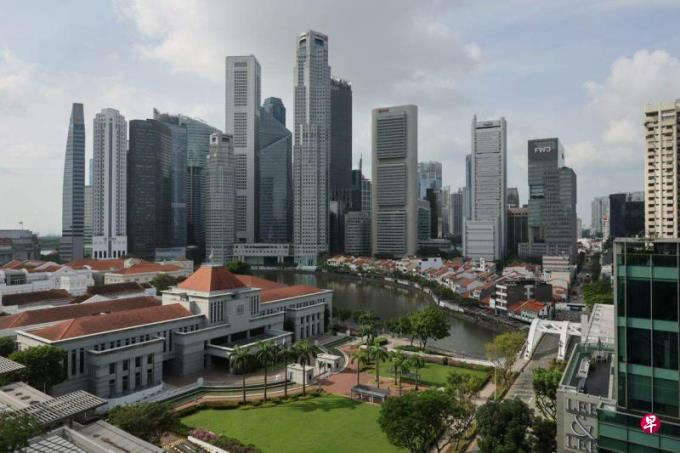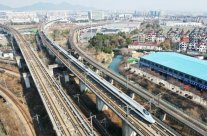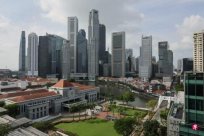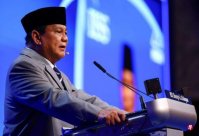
Americans and British cherishes freedom of speech, freedom of pressing, freedom of assembly, and freedom related to them.However, if they let them choose, will they accept certain rights to be restricted to enjoy high standard governance that Singaporeans are accustomed to?
When asked if the U.S. government operates well, most Americans' answers are negative.According to the recent public opinion survey of the international market research institution, more than two -thirds of the US adults believe that the country is moving towards the wrong direction.Gallop's report said that only 26%of people are confident in major American institutions such as the president, the Supreme Court and Congress.Among Americans aged 18 to 25, nearly half of people believe that democracy or dictatorship "is no different", or "dictatorship may be good in some cases."As the recent cover article of economists said: "After the victory of the Cold War, the American model seems impeccable. After a generation, Americans themselves have lost their confidence in this.
Most Singaporeans have a very different view of their government.Singapore implements a controlled political system. Although there are elections, it is conducive to the people's Action Party.According to a report from the Pew Research Center, three -quarters of the Singaporeans are satisfied with the democratic operation of their country.In addition, 80%of people believe that their country is moving towards the right direction, and this ratio is the highest among the polls made by 29 countries in May.
This year, the United States and Singapore are facing one of the most challenging tests in any political system, that is, the power transfer of the leaders.Political textbooks believe that the democratic system is more advantageous compared to the authoritarian or control system.However, as shown this year, the situation is not always the case.
In May this year, when the Prime Minister Li Xianlong gave the leader stick to his successor Huang Xuncai, the Singaporeans almost praised this orderly and peaceful power transfer.On the contrary, as the presidential election approaches, the pessimism of Americans is increasing day by day, and voters will have to have the victory of the two claims of the other party, which means that the candidate for the end of the American democracy will make a choice.According to the April polls of Reuters and Iposo, two -thirds of American voters believe that neither candidates should not be run.
These comparisons lead to a question: Is the level of governance in Singapore better than other countries?
Three transcripts and nine o'clock comparison
To answer this question, please refer to the following three transcripts. They use data from international organizations to evaluate Singapore and two countries that have held major elections this year: the United States and the United Kingdom.The extent of each transcript is based on the extent of these countries to reach the requirements of Singaporean founder Lee Kuan Yew (Li Xianlong's father).Li Guangyao believes that the government's functions are: "Improve the living standards of most people, and enable the people to enjoy the highest personal freedom that is consistent with other people in the society."
The first transcript considers citizenship.We evaluate adequate data based on income, health, safety, and security.
The second transcript covers the so -called "governance" of the World Bank, that is, the government's effectiveness in the face of problems, making policy choices, execution policies, and preventing corruption.
The third transcript considers personal rights and citizens' satisfaction with the government, and the explanation is more difficult.It includes international organizations, as well as the judgment made by citizens' opinions on the democratic situation of the country.
Nine -point revelation related to these transcripts is worthy of reflection.First of all, Li Xianlong left his successor a population that is now richer than Americans, and his richness is almost twice as much as the former British colonial rulers.When he took office in 2004, the so -called Singapore miracle had occurred: Since the 1960s, Singapore's economic growth has grown rapidly, which has led the country from poverty to three -quarters of the United States.Many analysts believe that this situation will remain unchanged.However, 20 years later, Singapore's per capita GDP (US $ 88,500, S $ 119,545), but more than 4%higher than the US GDP (US $ 85,000, about $ 114,818).
Secondly, although the rapid economic growth often leads to the expansion of the income gap, in the past 20 years, Singapore has significantly reduced the degree of inequality from 0.47 to 0.37 (measured with the Gini coefficient, 0 means that it is completely equal.Equality, and the United States has maintained around 0.47.In contrast, China ’s Gini coefficient is 0.46, and the country with the highest inequality is South Africa, 0.63.
Third, Singaporeans are generally healthier and longer than the United States and British.Only 20 years ago, the expectations of these three countries were roughly the same.Today, Singapore's expected life expectancy (83) is longer than the United States (76) and the UK (81 years old).Singapore's infant mortality rate has died from 27 of each newborn in 1965, fell to 4 in 2004, and 1.8 today, which is significantly lower than the other two countries.In addition, 93%of Singaporeans are satisfied with their own medical system. In contrast, Americans and British are satisfied with 75%and 77%, respectively.
Fourth, Singapore is clearly prepared for the major public health crisis.Because the crown disease epidemic attacks almost all countries at the same time, this constitutes a clear test for the response system of various countries.Based on per capita, Americans or British who died in crown disease are about 10 times that of Singaporeans.
Fifth, although about one -third of Singaporeans, Americans, and British graduate from university, the academic performance of Singapore students is often better than their peers in the other two countries.In 2022, 41%of middle school students in Singapore scores high scores in the mathematical test of the Economic Cooperation and Development Organization (OECD) countries, while the ratio of Americans and British is 7%and 11%, respectively.In 2009, Singapore ranked second and second only to China in the Mathematics test of the "Programme for International Student Assessment" (PISA). Nowadays, Singapore ranks first, leading in China and all other countries and other countries and other countries.Region, the United States ranks 34th and Britain ranks 14th.
Sixth, according to the global governance indicators of the World Bank, Singapore's performance surpasses the United States and the United Kingdom in terms of ensuring the rule of law and controlling corruption.This is consistent with the data of the Organization.The data shows that in terms of citizens' confidence in the judicial system (89%) and the overall satisfaction of the government (93%), Singapore ranks first among the Economic Organization countries.
Seventh, Singapore is one of the most stable countries in the world: in terms of "political stability and no violence and terrorism", the World Bank lists Singapore as the 97th percentage country.The 85th percentage of the year ago.In contrast, the United States is only ranked 45th percentage, and Britain is ranked 62 % percentage.
Eighth, as far as the political and legal environment, multinational companies generally believe that Singapore is the most suitable place in the world.In the global competitiveness index ranking of the World Economic Forum, Singapore surpassed the United States in 2019 and rose from 5th in 2004 to the first place today.Singapore ranked first in the business environment in Economist Intelligence Unit for 16 consecutive years; the United States usually ranks third, and Britain has not even entered the top 10.
Finally, Singaporeans exercise their political rights much less, which makes the situation complicated.According to "human rights observation(Humans Right Watch), Singapore's "political environment is still extremely depressed." Freedom house only listed Singapore as "part of freedom", only 48 points (full scores 100 points), and in the right to speak and the right to speak and "In terms of accountability, the World Bank only listed Singapore as the 44th percentage of all countries in the world.Freedom with the media. "In the United States and the United Kingdom, these numbers are much higher, sometimes twice as high as Singapore.
What is the role of the government?
Nevertheless, polls show that most Singaporeans are satisfied with their country's democratic system.However, even the Singaporeans who do not agree with the international community's criticism of their political people have realized that it is necessary to create more space for domestic debates.As New Prime Minister Huang Xuncai recently said: Most people "hope that Congress will have more voices of the opposition party. Therefore, there will definitely be the existence of the opposition in Congress"
The ranking of Singapore's first two transcripts is in sharp contrast to the ranking of the third transcript, which allows us to return to one question: What is the role of the government?From the perspective of the West, a more autocracy may be better than a more open democratic country. This situation is almost unimaginable.In history, there are few kindness dictatorships that can achieve good politics or maintain kindness for a long time.But as far as Singapore is concerned, the facts are in front of them and cannot be ignored.
Americans and British cherish freedom of speech, freedom of press, freedom of pressing, freedom of rally, and freedom related to them.However, if they let them choose, will they accept certain rights to be restricted to enjoy high standard governance that Singaporeans are accustomed to?They are more concerned about the freedom of what they want and support the opposition party, or the Singapore businessman Zheng Enli said, "You can walk safely on the street in the early morning, you can open the door without worrying about being theft", and "knowing that children are safe at school,Don't worry about the freedom of drugs or people with mental illness "?
To put it more exaggerated, we might as well consider an extreme assumption.Imagine that citizens in the United States and the United Kingdom do not make choices between the US presidential candidate Biden and Trump, or the Conservative and the Labor Party, but can vote for a alternative, that is, outsourcing the national governance work in the next four years to outsourcing the national governance work in the next four years.Singaporean ruling party.By 2028, citizens will have the opportunity to vote again. Whether the party is in power for four years, or restore the current system, and make choices among candidates launched by the two parties.
This is a radical and obvious unrealistic assumption.However, reflecting on the benefits of this issue and the benefits of this arrangement should help us think more clearly to make the government's required conditions.
Author Graham Allison is a professor at the Kennedy Government College of Harvard and former assistant Minister of Defense of the United States
English Original Title: What the West Can Learn from Singapore
All rights reserved: Foreign Policy, 2024.
Golden Shun Translation




